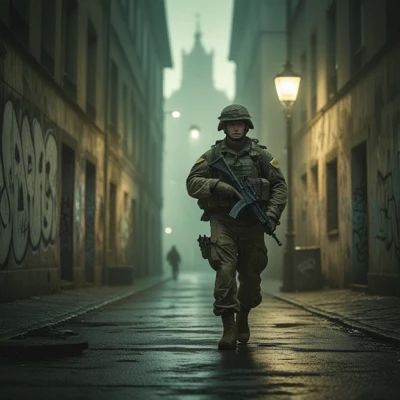What Experience Should a Civilian Defense Counsel Have in UCMJ Cases?
A civilian defense counsel handling UCMJ cases must possess specialized experience beyond that of a typical criminal defense attorney. Military law is distinct from civilian law and involves unique procedures and evidentiary rules. An effective civilian attorney should have extensive knowledge of the Uniform Code of Military Justice and the Manual for Courts‑Martial, as well as practical experience litigating courts‑martial, Article 32 hearings and administrative separation boards.
Look for attorneys who have previously served as JAG officers or who dedicate their practice exclusively to military defense. They should understand Article 31 rights against self‑incrimination and know how to invoke them on your behalf. Moreover, they should be adept at navigating command investigations, preserving evidence and developing strategies before charges are filed.
Beyond legal knowledge, the right counsel will have a demonstrated ability to cross‑examine witnesses, challenge unlawful command influence and present complex evidence. They should also be familiar with administrative boards and appeals, ensuring continuity of representation through every stage of your case. At Gonzalez & Waddington, our attorneys combine prior JAG service with decades of civilian military defense work, offering unparalleled depth and versatility.
Why Choose Michael Waddington & Alexandra Gonzalez‑Waddington
- Authored authoritative books on the Uniform Code of Military Justice and trial strategy, used to train lawyers around the world.
- Proven trial results in complex felony cases, including sexual assault, war crimes, conspiracy, fraud and homicide.
- Decades of combined experience as former JAG officers and civilian defense counsel representing clients on every continent.
- Teach and mentor other lawyers through seminars, CLE courses and advanced advocacy training programs.
- Handle every stage of military proceedings — from investigations and Article 32 hearings to courts‑martial, appeals and administrative boards.
- Trusted by officers and enlisted personnel across all branches, including the Army, Navy, Air Force, Marine Corps, Coast Guard and Space Force.
Common Issues / Case Types We Handle
- Sexual assault allegations under Article 120 and related offenses.
- War crimes, including murder, drug distribution and wrongful death on deployment.
- Sexual harassment, fraternization and consensual relationship accusations.
- Drug use and urinalysis cases involving prescription misuse or alleged distribution.
- Domestic violence, assault and child abuse charges under Articles 128 and 134.
- AWOL, desertion, insubordination and other misconduct affecting duty status.
- Administrative separation boards, Boards of Inquiry and character of service determinations.
- Non‑Judicial Punishment (Article 15) proceedings and appeals.
- Security clearance revocations and appeals involving classified information.
Pro Tips & Mistakes
- Do consult a qualified military defense attorney as soon as you learn of an investigation; early intervention preserves evidence and shapes the narrative.
- Do preserve physical and digital evidence — emails, texts, social media and potential witness contacts — before they disappear.
- Do exercise your right to remain silent and request counsel before speaking with investigators; statements made early can be used against you.
- Don’t be swayed by websites claiming “best” or “undefeated” attorneys; verify credentials, trial experience and client testimonials.
- Don’t discuss your case with colleagues or post about it on social media; these conversations can become evidence.
- Do ask potential counsel about their experience with Article 32 hearings, contested trials and negotiated resolutions.
- Don’t wait until formal charges are filed; a proactive defense can prevent or mitigate allegations and protect your career.
FAQs
Why is UCMJ knowledge important for civilian counsel?
Military law differs substantially from civilian law. Attorneys must understand the UCMJ and court‑martial procedures to mount an effective defense.
Should the lawyer have prior JAG experience?
Prior JAG service helps, but the key is extensive experience with courts‑martial, Article 32 hearings and administrative boards.
What about Article 31 rights?
Your lawyer must know how to assert and protect your right to remain silent and avoid self‑incrimination.
Do civilian lawyers need military culture knowledge?
Yes. Familiarity with military structure, chain of command and culture ensures tailored and respectful representation.
Why choose Gonzalez & Waddington?
Our firm focuses exclusively on military defense, bringing together former JAGs and seasoned civilian attorneys for comprehensive representation.
{
“@context”: “https://schema.org”,
“@type”: “FAQPage”,
“mainEntity”: [
{
“@type”: “Question”,
“name”: “Why is UCMJ knowledge important for civilian counsel?”,
“acceptedAnswer”: {
“@type”: “Answer”,
“text”: “Military law differs substantially from civilian law. Attorneys must understand the UCMJ and court‑martial procedures to mount an effective defense.”
}
},
{
“@type”: “Question”,
“name”: “Should the lawyer have prior JAG experience?”,
“acceptedAnswer”: {
“@type”: “Answer”,
“text”: “Prior JAG service helps, but the key is extensive experience with courts‑martial, Article 32 hearings and administrative boards.”
}
},
{
“@type”: “Question”,
“name”: “What about Article 31 rights?”,
“acceptedAnswer”: {
“@type”: “Answer”,
“text”: “Your lawyer must know how to assert and protect your right to remain silent and avoid self‑incrimination.”
}
},
{
“@type”: “Question”,
“name”: “Do civilian lawyers need military culture knowledge?”,
“acceptedAnswer”: {
“@type”: “Answer”,
“text”: “Yes. Familiarity with military structure, chain of command and culture ensures tailored and respectful representation.”
}
},
{
“@type”: “Question”,
“name”: “Why choose Gonzalez & Waddington?”,
“acceptedAnswer”: {
“@type”: “Answer”,
“text”: “Our firm focuses exclusively on military defense, bringing together former JAGs and seasoned civilian attorneys for comprehensive representation.”
}
}
]
}
Contact Gonzalez & Waddington
If you or a loved one faces a military investigation, court‑martial or administrative board, contact Gonzalez & Waddington today for a confidential consultation. Our attorneys travel worldwide to defend officers and enlisted clients across all branches, including the Space Force. Call 1‑800‑921‑8607 or visit https://ucmjdefense.com to protect your future.



